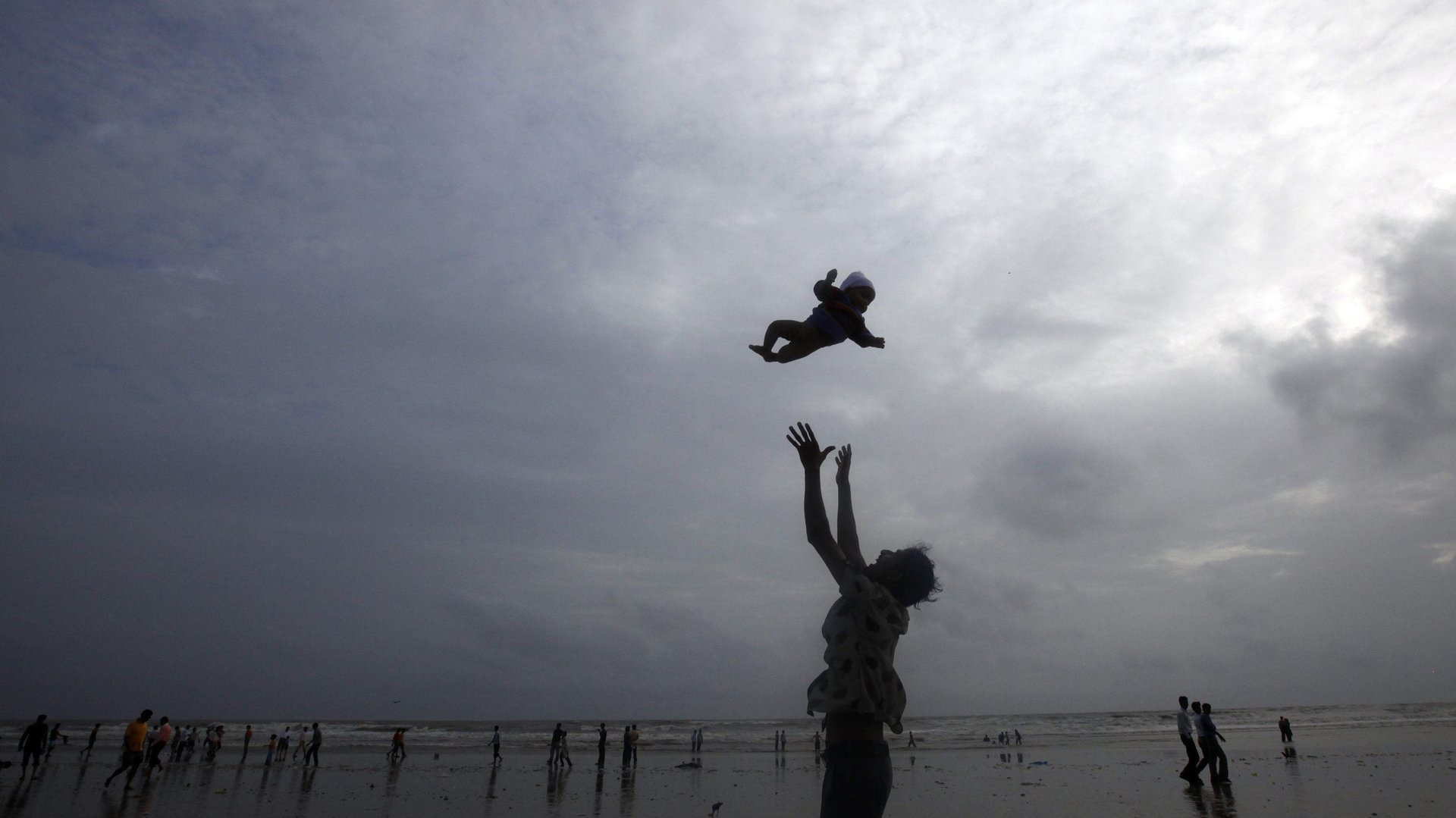Is it unethical to have kids in the era of climate change? A philosophy professor explains
A lot of people are already worried about climate change—and now David Wallace-Wells has warned us that it’s even worse than we think, and much closer at hand. “Absent a significant adjustment to how billions of humans conduct their lives,” he writes, “parts of the Earth will likely become close to uninhabitable, and other parts horrifically inhospitable, as soon as the end of this century.”


A lot of people are already worried about climate change—and now David Wallace-Wells has warned us that it’s even worse than we think, and much closer at hand. “Absent a significant adjustment to how billions of humans conduct their lives,” he writes, “parts of the Earth will likely become close to uninhabitable, and other parts horrifically inhospitable, as soon as the end of this century.”
Some climate scientists, including Pennsylvania State University climatologist Michael Mann, argue that Wallace-Wells’ vision of the near future is excessively bleak. But if the article’s predictions are accurate, he’s right: it’s worse than most of us think. The global warming apocalypse is at hand, and it won’t be pretty: We will suffer—a lot—then die, and then die off. The looming environmental disaster will kill us in a variety of ways: by suffocation in carbon-dioxide choked air; by prehistoric plagues, currently trapped in an iceberg, reemerging as the Arctic melts; by starvation as the arable land dries out; by poisoning from lethal ocean gases released due to ocean life die off, and by simply cooking us (we are meat, after all).
Is it morally acceptable to create new people to suffer all this along with us?
In my book, The Risk of a Lifetime, about the ethics that can guide our decisions about procreation, I argue that when we have children, we impose life’s risks upon them. Therefore, we ought to consider the nature of those risks in advance, in order to figure out whether they are fair to impose. The implications of climate change for the procreative moral question cannot be ignored. Given that life is already quite risky, unpredictable, and often utterly miserable, the environmental factor might be a tipping point for the question, “Is life a worthwhile risk?”
What makes Wallace-Wells’ doomsday scenario an unusual challenge to the morality of having children is the ubiquity and scope of the risks it poses. We can sometimes mitigate the risks of life we impose on our children: for example, by choosing a reliable and worthy partner, getting our own professional and financial lives in order, testing for devastating genetic diseases, moving to a good school district. These moves are no guarantee that our children won’t live painful, awful lives, but they are steps we can sometimes take to make it less likely, to mitigate life’s risks.
But if the effects of climate change turn out to be catastrophic, they will affect everyone. No amount of planning or saving or luck or psychiatry can change the temperature at which you cook or un-poison your air. And so, if Wallace-Wells is right about the coming climate apocalypse, we have no moral business creating more people to suffer through it.
That said, these ideas depend upon the actual impact of climate change, which is a question for scientists. There is scientific consensus that climate change is real; that humans impact it; and that it will cause a whole lot of trouble for us, and for the planet, if we don’t change our fuel burning ways. What is less clear is how likely the doomsday climate scenario is; what it might entail; and how quickly it might arrive.
Predicting the future isn’t easy. In 1798, Thomas Malthus predicted that the human population would inevitably outstrip the food supply. It didn’t, mostly due to technological advances that Malthus could not foresee. Imagine if everyone had decided to stop having children back then, to avoid the “inevitable” famine!
In the 1890’s, cities around the world faced a seemingly insurmountable problem: horse manure was piling up all over the streets. No one had any idea where to put it, or how to produce less of it. Everyone worried that the manure would lead to the spread of typhoid fever and other diseases. “In 50 years,” The London Times predicted, “every street in London will be buried under nine feet of manure.” Imagine if people had decided it was wrong to create a child to wade through the muck. “Manure-free automobiles are almost here,” you’d want to tell them. Cars! Who knew?
This is the optimists’ response to climate change, which is similar to the response of some prominent climate change scientists: We can fix it. Solar power will get cheaper and even more efficient. We will develop huge, cheap batteries that allow us to rely less on fossil fuels. We’ll figure out a way to extract all that pesky carbon dioxide from our atmosphere. Maybe.
If you want to have a baby, you’d better fix the world, baby. And, apparently, a lot faster than we thought.
Editor’s note: Due to an editing error, a draft of this article was initially published. That version has been replaced.